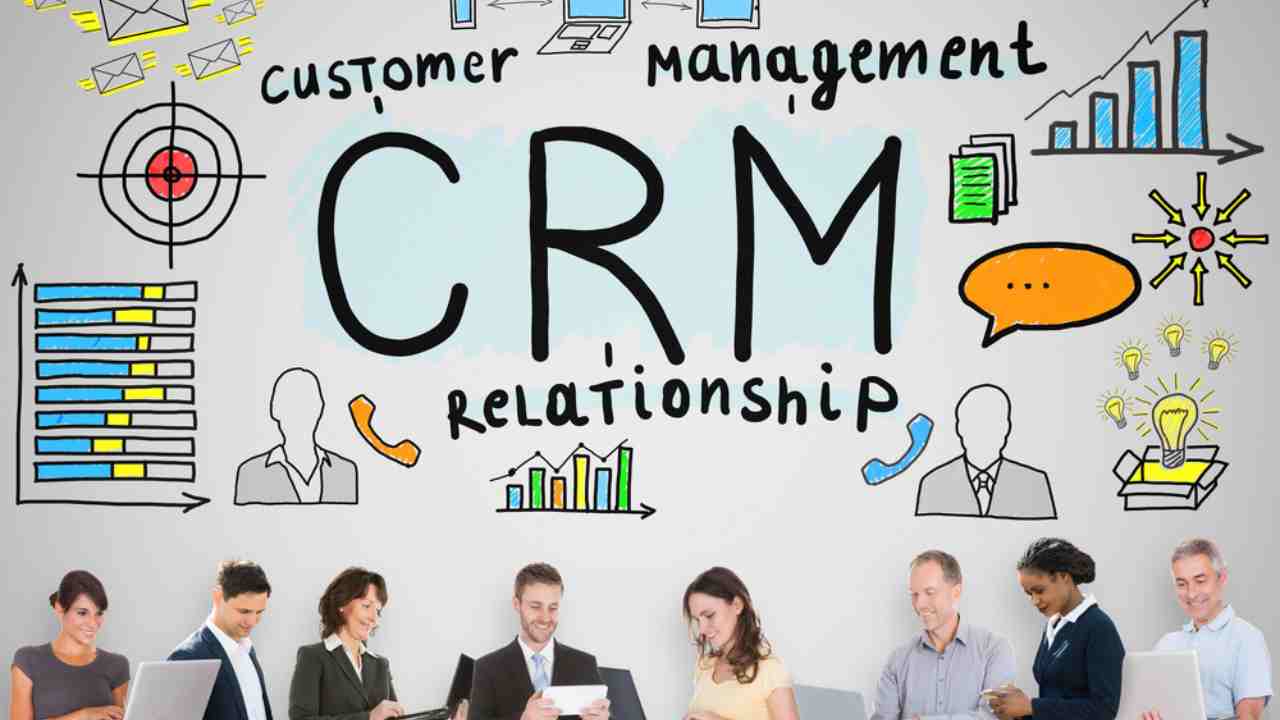Benefits of Investing in CRM Software

Customer Relationship Management (CRM) software has become an essential tool for businesses of all sizes and industries. It allows companies to manage their interactions with customers, streamline processes, and improve overall efficiency. In today’s competitive business landscape, investing in CRM software can provide numerous benefits that can significantly impact a company’s success. In this article, we will explore the key advantages of implementing CRM software and how it can revolutionize your business operations.
1. Enhanced Customer Relationships
One of the primary benefits of CRM software is its ability to improve customer relationships. By centralizing customer data and interactions, businesses can gain a comprehensive view of each customer’s journey. This enables companies to personalize their interactions, anticipate customer needs, and provide exceptional customer service.
For example, let’s consider a small e-commerce business that uses CRM software. With CRM, they can track customer preferences, purchase history, and communication history. Armed with this information, they can tailor their marketing campaigns, offer personalized recommendations, and resolve customer issues promptly. As a result, customers feel valued and understood, leading to increased loyalty and repeat business.
2. Streamlined Sales Process
CRM software can significantly streamline the sales process by automating various tasks and providing valuable insights. It allows sales teams to manage leads, track opportunities, and monitor sales pipelines effectively. By automating repetitive tasks, such as data entry and follow-ups, sales representatives can focus on building relationships and closing deals.
For instance, a real estate agency can benefit from CRM software by automating lead capture from their website, tracking client interactions, and managing property listings. This automation saves time and ensures that no leads slip through the cracks. Additionally, CRM software provides analytics and reporting features that enable sales managers to identify bottlenecks, optimize sales strategies, and forecast future revenue.
3. Improved Collaboration and Communication
CRM software promotes collaboration and communication within an organization by providing a centralized platform for sharing customer information and insights. It eliminates silos and ensures that everyone has access to the same up-to-date data, fostering better teamwork and coordination.
For example, consider a marketing agency that uses CRM software. With CRM, the marketing team can easily access customer data, including past campaigns, preferences, and feedback. This information allows them to create targeted and personalized marketing campaigns that resonate with the target audience. Furthermore, CRM software enables seamless communication between different departments, such as sales and marketing, ensuring a cohesive customer experience.
4. Increased Efficiency and Productivity
CRM software automates manual tasks, eliminates paperwork, and streamlines processes, leading to increased efficiency and productivity. It reduces the time spent on administrative tasks, allowing employees to focus on more value-added activities.
For instance, a customer support team can benefit from CRM software by automating ticket management, categorizing inquiries, and providing self-service options. This automation reduces response times, improves customer satisfaction, and frees up support agents to handle more complex issues. Additionally, CRM software can integrate with other business tools, such as email marketing platforms or project management software, further enhancing productivity.
5. Data-Driven Decision Making
CRM software provides valuable insights and analytics that enable data-driven decision making. It allows businesses to track key performance indicators (KPIs), measure the effectiveness of marketing campaigns, and identify trends and patterns.
For example, a retail business can use CRM software to analyze customer purchase patterns and preferences. This data can help them identify their most profitable customer segments, optimize inventory management, and tailor their product offerings. By leveraging data-driven insights, businesses can make informed decisions that drive growth and profitability.
6. Scalability and Growth
CRM software is designed to scale with your business as it grows. Whether you are a small startup or a large enterprise, CRM software can accommodate your needs and adapt to your changing requirements.
For instance, a small business that starts with a basic CRM system can easily upgrade to a more advanced version as their customer base expands. CRM software can handle increasing data volumes, support more users, and integrate with other business systems seamlessly. This scalability ensures that your CRM solution remains relevant and effective as your business evolves.
Get Your FREE 14-Day Trial and Take Your Business To The Next Level with an All-In-One Sales and Marketing Platform for businesses, agencies and marketers.
Investing in CRM software offers numerous benefits that can transform the way businesses operate. From enhancing customer relationships to streamlining sales processes and improving collaboration, CRM software provides a comprehensive solution for managing customer interactions. It increases efficiency, enables data-driven decision making, and supports scalability and growth. By implementing CRM software, businesses can gain a competitive edge, drive customer loyalty, and achieve long-term success.
Discover the power of CRM software for your business with SaasExpert.ca – Your All-In-One Sales and Marketing Platform for small businesses, agency owners, and marketers.
Learn more about “The Impact of CRM Software on Business” right here.
Frequently asked questions about Benefits of Investing in CRM Software

Why should businesses invest in CRM software? 🤷♂️
Investing in CRM software is one of the most forward-thinking decisions a business can make. 🌟 It offers a centralized system for managing customer relationships, which is key to understanding, serving, and retaining clients effectively. With CRM, businesses can streamline operations, improve sales strategies, and provide exemplary customer service. In the long run, this not only boosts profitability but also fosters brand loyalty and advocacy. Think of it as building a bridge 🌉 between your brand and your customers, ensuring seamless and enhanced interactions every time!
Is there an ROI (Return on Investment) when investing in CRM software? 💰
Yes, the ROI of investing in CRM software is substantial! 🚀 While the initial costs might seem significant, the long-term benefits far outweigh the expenses. Businesses see improvements in sales conversions, customer retention, and overall operational efficiency. Automation features can lead to significant time and resource savings. Plus, analytics and insights 📊 help in fine-tuning marketing and sales strategies, leading to higher revenue. Over time, a well-implemented CRM system can pay for itself multiple times over, making it a smart investment for future growth. 💹
How does CRM software benefit small businesses? 🏢
Size doesn’t matter when it comes to the benefits of CRM software! 🌱 Small businesses, in particular, can gain a competitive edge by adopting CRM early on. It helps in organizing customer data, automating tasks, and most importantly, in scaling operations as the business grows. With CRM, small businesses can offer the kind of personalized experiences that bigger competitors deliver, but with a unique touch. Additionally, CRM tools can optimize marketing efforts, ensuring that even limited budgets create impactful results. It’s like giving your small business a superpower! 💪🚀
Can CRM software enhance team collaboration and productivity? 👥
Absolutely! CRM software is more than just a customer management tool; it’s a collaboration enhancer. 🤝 Teams across departments can access unified customer data, ensuring everyone is on the same page. With features like task management, calendar integrations, and real-time updates, teams can coordinate seamlessly, reducing overlaps and ensuring timely deliverables. The result? A cohesive unit working towards common goals with maximum productivity. It’s like having a virtual workspace where every team member collaborates in harmony! 🎶✨
Does CRM software offer any benefits in terms of business analytics and forecasting? 🔍
Yes, and this is one of its standout features! CRM software comes equipped with robust analytical tools that can turn raw data into actionable insights. 📈 Businesses can track sales trends, monitor customer behaviors, and even predict future purchase patterns. With this wealth of information, companies can make informed decisions, allocate resources wisely, and anticipate market shifts. It’s like having a crystal ball 🔮 that helps you foresee and shape your business’s future!







